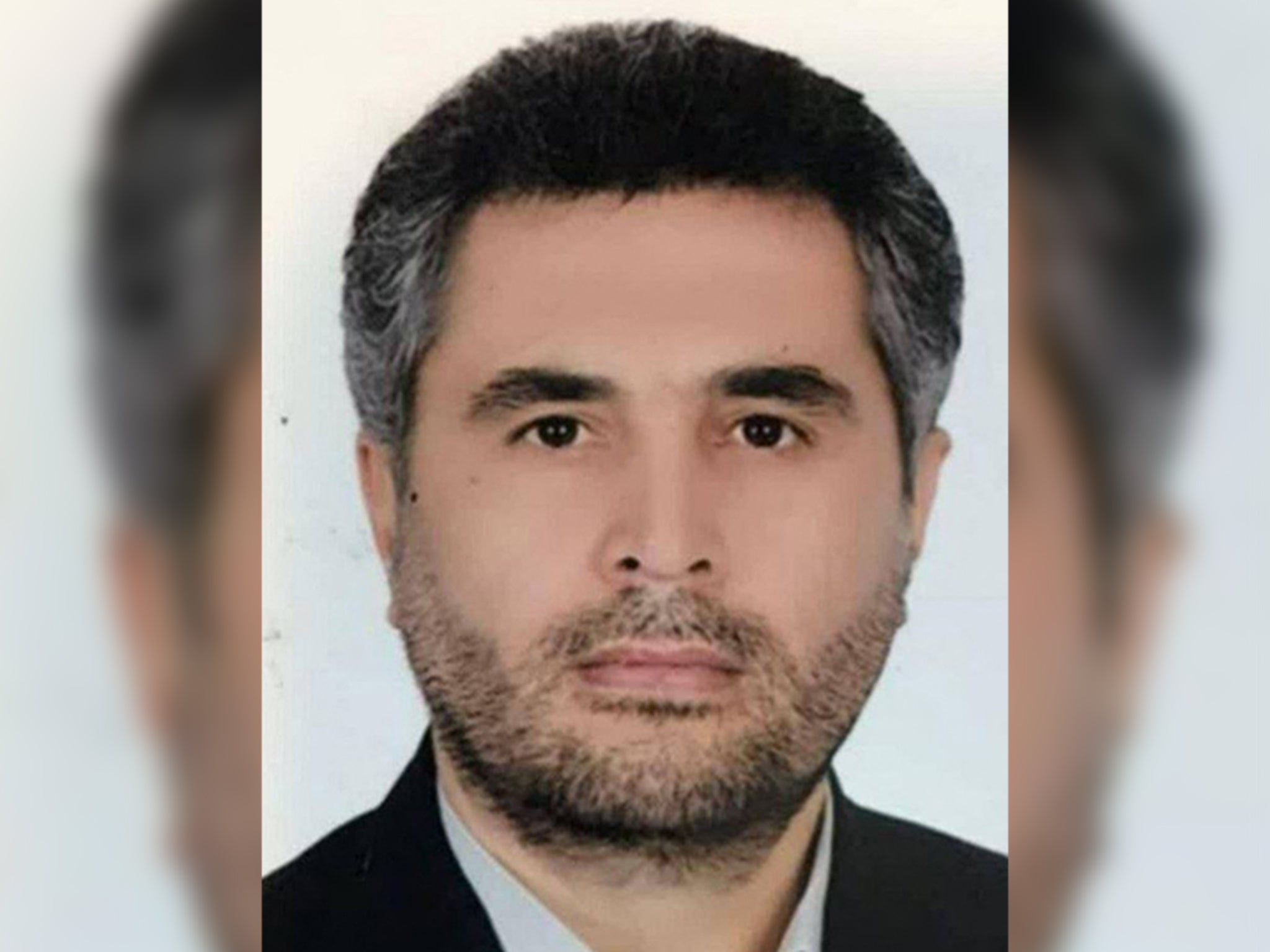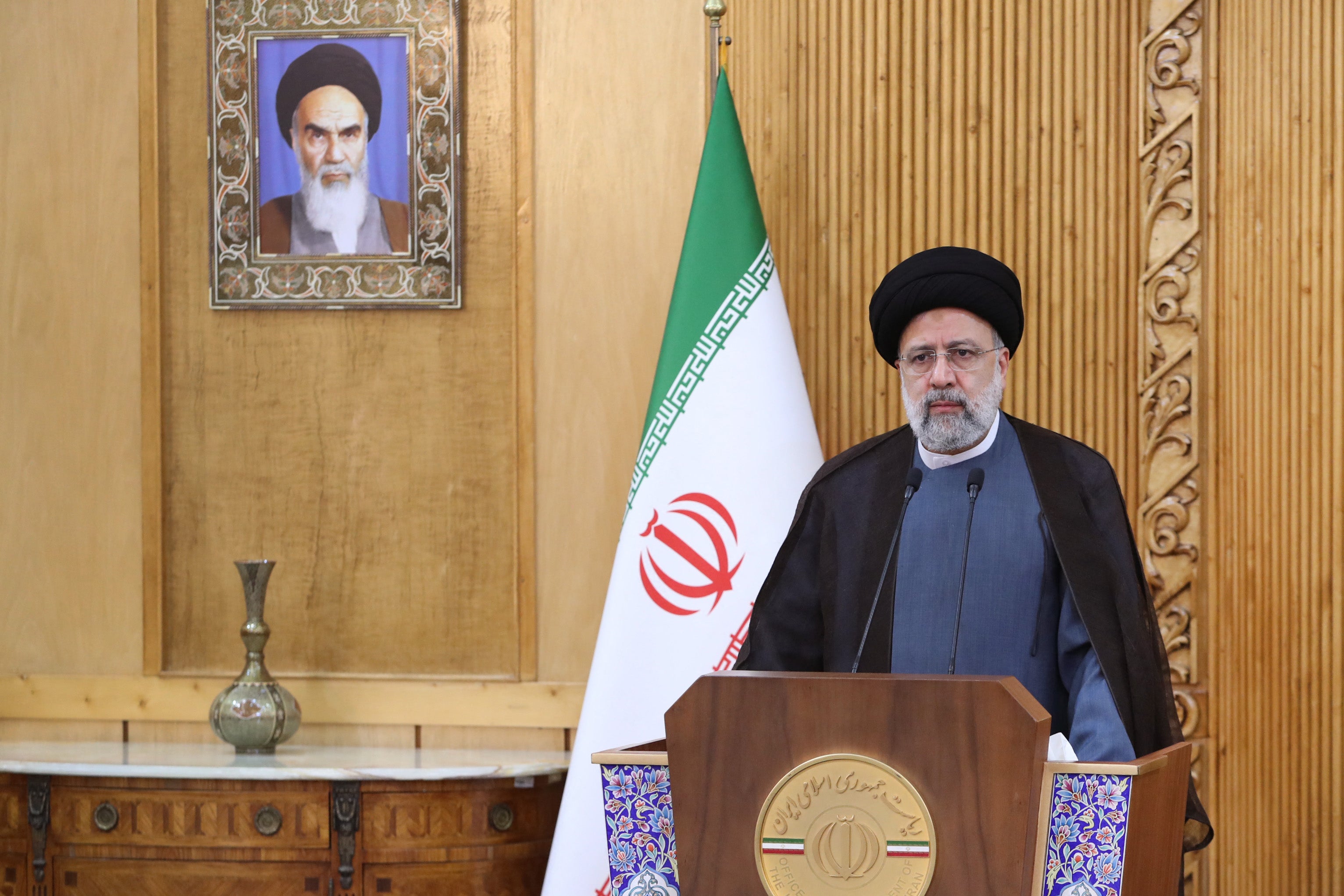Gunned down in Tehran: Assassination of Revolutionary Guard officer raises fears of Iran-Israel escalation
Daylight killing of Hassan Sayyad Khodai in capital suggests deep foreign intelligence penetration

Your support helps us to tell the story
From reproductive rights to climate change to Big Tech, The Independent is on the ground when the story is developing. Whether it's investigating the financials of Elon Musk's pro-Trump PAC or producing our latest documentary, 'The A Word', which shines a light on the American women fighting for reproductive rights, we know how important it is to parse out the facts from the messaging.
At such a critical moment in US history, we need reporters on the ground. Your donation allows us to keep sending journalists to speak to both sides of the story.
The Independent is trusted by Americans across the entire political spectrum. And unlike many other quality news outlets, we choose not to lock Americans out of our reporting and analysis with paywalls. We believe quality journalism should be available to everyone, paid for by those who can afford it.
Your support makes all the difference.The brazen daylight assassination of an Iranian military officer in Tehran has prompted calls for revenge and shined a spotlight on the ongoing shadow war being fought between the Islamic Republic and Israel.
Col Hassan Sayyad Khodai was an officer in the Revolutionary Guard corps involved in operations abroad, including Syria and possibly elsewhere. He was shot dead by gunmen on a motorcycle on Sunday afternoon at around 4pm. He was returning from work in his car and had just approached his home in east-central Tehran when the killers fired five rounds at him, state media reported.
A photograph showed him in bloodied civilian clothes, slumped over in the driver-side seat of white sedan with its left-window shattered. His funeral was scheduled for Monday.
Iranian officials and state media outlets pinned the killing on “global arrogance”, a reference to the United States and its allies, without naming any country.
"I call on security officials to seriously investigate the crime,” Iranian president Ebrahim Raisi said in Tehran before departing for talks with senior officials in Oman. “I have no doubt that revenge on criminals for the pure blood of this honourable martyr is inevitable.”
Israeli media outlets have strongly suggested that Israel was behind the attack, and Israeli authorities on Monday cautioned their diplomatic outposts abroad to prepare for possible retaliation.
The news platform Nour, which is close to Iran’s powerful Supreme National Security Council, described the killing as a “miscalculated crossing of a red line that will change many calculations” in a cryptic tweet.
“The perpetrators of this crime will pay a heavy price,” it said.
Iranian lawmaker Mojtaba Zolnouri, head of the parliament’s national security committee, said the “killing has no special operational value” as Khodai was under no special security protection.
But the killing had all the hallmarks of an espionage thriller, suggesting deep foreign intelligence penetration deep inside Iran. The successful assassination in the heart of the Iranian capital constitutes yet another embarrassing security and intelligence failure for the country, which aggressively locks up dissidents and dual nations on flimsy espionage charges.
“Whoever did this had the operational intelligence and capabiity to execute and perhaps to get away,” retired Israeli Brig Gen Assaf Orion, now a Rueven international fellow at the Washington Institute for Near East Policy and a senior fellow at the Insitute for National Security Studies in Tel Aviv, said in an interview “It says something about the capabilities of the attacker on one hand, but it shows vulnerabilities of Iran on the other hand.”
The killing follows the 27 November 2020, assassination of Iranian nuclear scientist Mohsen Fakhrizadeh, another daylight killing in Iran allegedly carried out by Israel and local operatives, as well as several 2021 sabotage operations targeting Iran’s nuclear technology and missile programmes.
While Fakhrizadeh was long a person of interest to western intelligence agencies and international nuclear inspectors seeking answers about Iran’s atomic technology programme, Khodai is an unknown figure. In a Middle East intelligence and security realm that resembles a house of mirrors, little is known about what Khodai did for a living and why he was killed.
Iranian media have confirmed that Khodai was among the “defenders of the shrines,” a reference to those who had served in Syria to fight on behalf of the regime of Bashar al-Assad against a popular armed rebellion.
Few if any ordinary Iranian military personnel served in Syria. Khodai’s rank and Syria deployment suggest that he was a member of the Quds Force, the Revolutionary Guard’s overseas branch that is allegedly behind assassination operations abroad as well as coordination with armed allied groups across the Middle East and South Asia.
Some media outlets cited intelligence officials alleging that Khodai was involved in the targeting of prominent Israelis abroad, specifically in an operation to lure Israeli citizens to their deaths in Cyprus, Colombia, Kenya and Turkey. Recently Israel’s consul general in Istanbul and Israeli-Turkish businessman were the targets of foiled alleged assassination plots.
“Assuming that what we read in the reports is correct, his occupation was being part of the Quds Force and possibly involved in directing terror attacks against Israelis overseas,” said Mr Orion. “If it’s correct, he’s a terrorist. It may well be this was a preventive counter-terror operation seeking to foil additional operations from happening.”
But Israeli media, including the state-operated Channel 13, also suggested that Khodai was involved in Iran’s missile and drone programme, overseeing the transfer of sophisticated weapons to Hezbollah in Lebanon.
None of the Israeli media identified sources.

In Iran, the Revolutionary Guard and the Ministry of Intelligence and Security announced a joint operation in which an unspecified number of operatives allegedly collaborating with Israel were arrested.
In a statement published on state media, authorities accused the detained of "robbery and destruction of private and public property, kidnapping and fabricated coercion of confessions".
The killing of Khodai and the arrests come amid a fresh wave of small protests across the country over rising food prices after the government announced a plan to reduce subsidies and increase cash handouts to the poor.
Iran and the U.S. are currently at loggerheads in indirect talks meant to restore a collapsing 2015 nuclear deal that was meant to rein in Iran’s nuclear technology programme in exchange for relief from sanctions. The talks have bogged down over Washington’s refusal to lift its designation of the Revolutionary Guard as a terrorist organisation.



Join our commenting forum
Join thought-provoking conversations, follow other Independent readers and see their replies
Comments